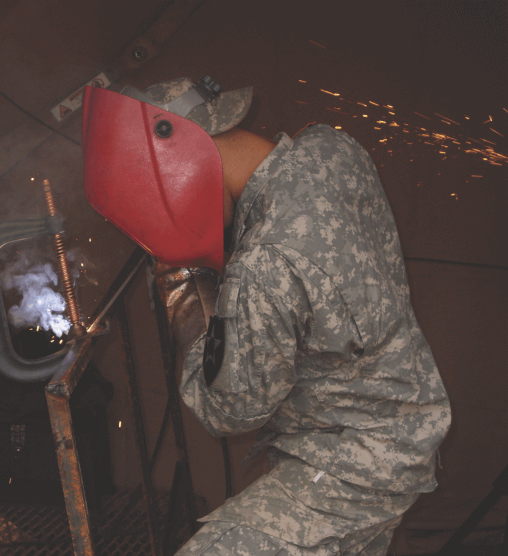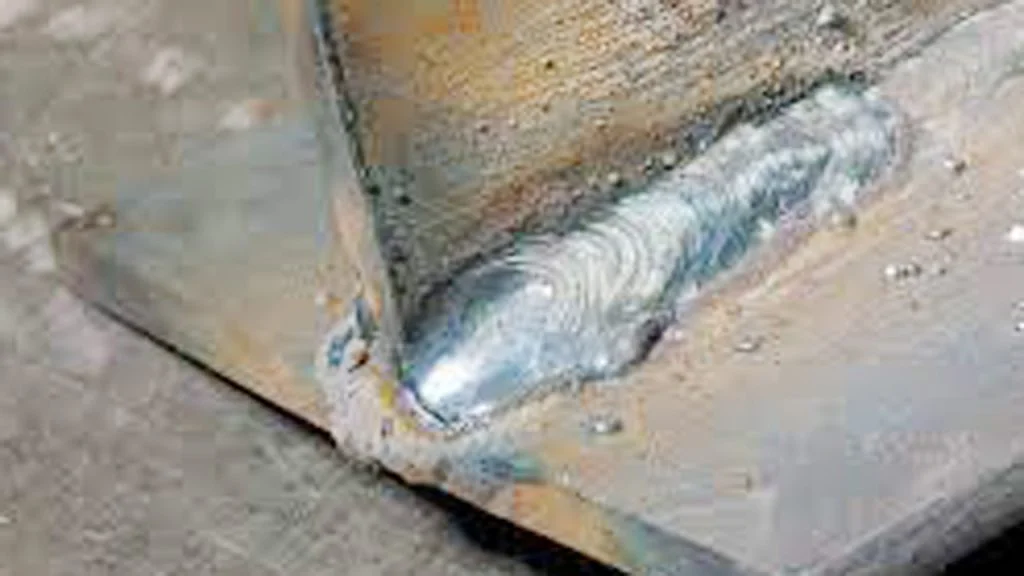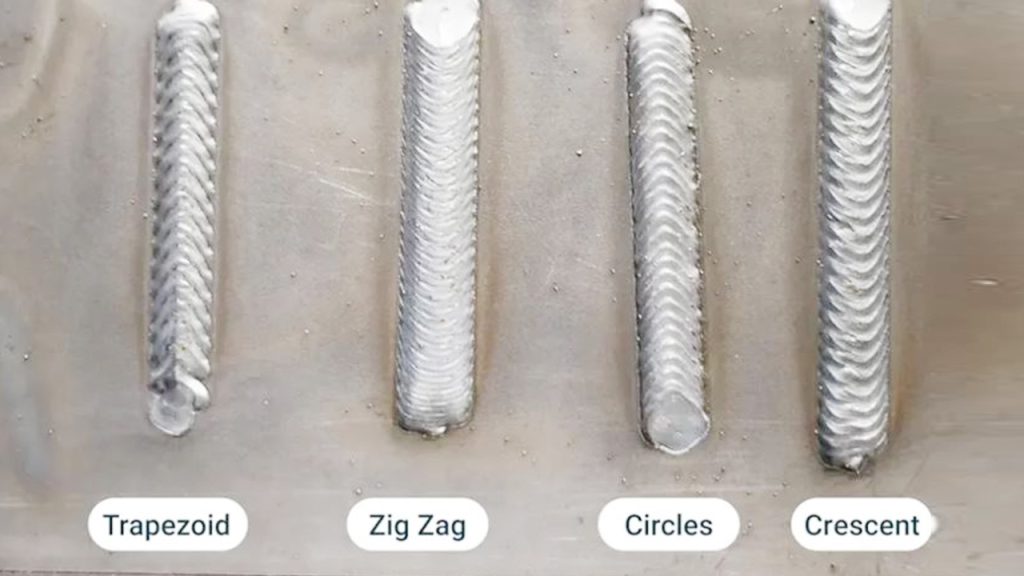Yes, you can weld for the Army. The Army often needs skilled welders.
Joining as a welder offers unique experiences and benefits. Welding in the Army is not just about joining a job; it’s about being part of something bigger. The Army looks for dedicated individuals to maintain and repair essential equipment. This role ensures that vehicles and machinery are always ready for action.
Welders in the Army receive specialized training and work with advanced tools. This experience can enhance your skills and career prospects. Plus, serving as a welder in the Army provides a sense of pride and accomplishment. If you have welding skills and a desire to serve, the Army might be the perfect place for you.

Credit: americantorchtip.com
Introduction To Army Welding
Welding is a skill that’s essential in many industries, but did you know it plays a crucial role in the army too? If you’re curious about how you can weld for the army, you’re in the right place. This post will introduce you to the fascinating world of army welding. We’ll explore the roles of welders, the importance of their work, and what it takes to join this unique profession. Let’s dive in!
Role Of Welders In The Army
Army welders are vital members of the military team. They perform a range of tasks that are essential for keeping the army’s equipment in top condition. From repairing vehicles to maintaining weapons systems, their work ensures that everything functions smoothly. Here are some key duties of army welders:
- Repairing and fabricating metal structures
- Maintaining armored vehicles
- Constructing field fortifications
- Supporting engineering units in building bridges and other structures
One might wonder, what does a typical day look like for an army welder? Picture this: A welder could be working on a tank today, and tomorrow, they might be building a crucial part of a temporary bridge. The variety keeps the job exciting and challenging.
Importance Of Welding In Military Operations
Welding is not just a job in the army; it’s a mission-critical task. Without skilled welders, the army’s operational efficiency could be significantly hampered. Here’s why welding is so important in military operations:
- Equipment Readiness: Welders ensure that all vehicles and machinery are ready to go at a moment’s notice. This readiness is crucial for the success of any mission.
- Safety: Proper welding ensures the structural integrity of equipment, which is vital for the safety of soldiers.
- Adaptability: In the field, situations can change rapidly. Welders provide the flexibility to modify and repair equipment on the fly.
- Innovation: Sometimes, army welders need to create new solutions to unexpected problems. Their creativity and technical skills are invaluable.
Imagine being in a remote location where a vehicle breaks down. Thanks to the skills of an army welder, that vehicle can be back in action in no time. It’s not just about fixing things; it’s about ensuring missions are completed successfully.
In conclusion, welding for the army is a rewarding and dynamic career. It combines technical skills with the honor of serving your country. Whether you’re maintaining vital equipment or constructing essential structures, your work as an army welder makes a significant impact. If you have a passion for welding and a desire to support military operations, this might just be the perfect career path for you.

Credit: www.army.mil
Basic Welding Skills
So, you’re curious about welding for the Army? That’s fantastic! Before you dive into this exciting career, it’s essential to understand the basic welding skills you’ll need. These skills not only form the foundation of your welding journey but also ensure you’re prepared for the unique challenges that come with military welding. In this section, we’ll explore the types of welding techniques and the essential tools you’ll need. Ready to learn? Let’s get started!
Types Of Welding Techniques
Welding isn’t just about fusing metal; it’s an art. Different techniques are used for various materials and jobs. Here are some common types:
- MIG Welding (Metal Inert Gas): This is a great starting point. It’s easy to learn and works well on thin metals.
- TIG Welding (Tungsten Inert Gas): More advanced, TIG welding is perfect for precise and clean welds on metals like aluminum and stainless steel.
- Stick Welding: Also known as Shielded Metal Arc Welding (SMAW), it’s a versatile technique often used in construction and repair work.
- Flux-Cored Arc Welding (FCAW): Ideal for outdoor jobs, this method is similar to MIG but uses a special wire that helps protect the weld.
Essential Welding Tools
Having the right tools is crucial for any welder. Here are some of the must-haves:
| Tool | Purpose |
|---|---|
| Welding Machine | Provides the power needed to create the weld. |
| Welding Helmet | Protects your eyes and face from sparks and UV radiation. |
| Welding Gloves | Protect your hands from heat and metal splatter. |
| Angle Grinder | Useful for preparing metal surfaces and cleaning up welds. |
| Clamps | Hold metal pieces in place while you weld. |
With these tools in your arsenal, you’ll be well-equipped to tackle any welding task that comes your way. Remember, practice makes perfect. The more you weld, the better you’ll get. So, roll up those sleeves and get ready to spark some metal!
Have questions or need more tips? Drop them in the comments below – we’re here to help!
Advanced Welding Techniques
Advanced welding techniques are crucial for the Army. These techniques ensure strong and reliable welds. Soldiers often face harsh and demanding environments. Advanced welding skills can make a big difference. They help create durable and safe equipment. Let’s explore some advanced welding techniques used in the Army.
Mig And Tig Welding
MIG welding, or Metal Inert Gas welding, uses a continuous wire feed. It is quick and efficient. This method is great for welding large metal pieces. MIG welding creates strong bonds with minimal effort.
TIG welding, or Tungsten Inert Gas welding, is more precise. It uses a non-consumable tungsten electrode. This method is ideal for detailed and clean welds. TIG welding is preferred for high-quality projects. Both techniques are vital for military applications.
Robotic And Automated Welding
Robotic welding uses machines to perform welding tasks. It ensures consistent and accurate welds. Robotic systems can work in hazardous environments. They help reduce the risk to soldiers.
Automated welding involves using advanced software and machinery. These systems can handle complex welding tasks. They improve efficiency and precision. The Army benefits greatly from these technologies. They ensure high-quality and reliable welds under tough conditions.
Physical And Mental Requirements
Thinking about welding for the Army? It’s not just about skill with a torch. You’ll need to be in good shape and have a strong mind. Let’s break down what’s needed physically and mentally to take on this important role.
Physical Fitness Standards
First off, you must meet the Army’s physical fitness standards. This isn’t just about lifting heavy things. It’s about overall fitness. You need to run, do push-ups, and sit-ups. The Army has a test for this called the Army Physical Fitness Test (APFT). Here’s a quick look at what you might face:
| Activity | Male Standard | Female Standard |
|---|---|---|
| 2-Mile Run | 16:36 minutes or less | 19:42 minutes or less |
| Push-Ups | 42 in 2 minutes | 19 in 2 minutes |
| Sit-Ups | 53 in 2 minutes | 53 in 2 minutes |
Now, don’t let this scare you. It might look tough, but many have done it, and so can you. Training and determination are key.
Mental Resilience And Focus
Welding for the Army is more than physical strength. It’s a demanding job that requires mental toughness too. Imagine working under pressure, sometimes in tough weather. Your mind must stay sharp.
Here are some mental traits you’ll need:
- Focus: Precision is vital. One slip and a weld can fail.
- Resilience: There will be stress. Being able to keep calm and carry on is crucial.
- Problem-Solving Skills: Sometimes things go wrong. You need to think quickly and fix issues on the fly.
Remember, the Army provides training and support. They want you to succeed. So, while it may seem daunting, with the right mindset, you can handle it.
Feeling ready to take on the challenge? The combination of physical fitness and mental resilience will set you on the path to becoming an Army welder. It’s a tough job, but incredibly rewarding. So, lace up those running shoes and start practicing your welding techniques. The Army awaits!
Educational And Training Pathways
Welding for the Army requires specific skills and knowledge. The right education and training pathways can open doors. Let’s explore the options available.
Technical School Programs
Technical schools offer welding programs. These programs teach the basics and advanced techniques. Students learn about different welding methods. They also get hands-on experience with welding tools. Many programs last for two years. Graduates earn a certificate or an associate degree. This education can make you a strong candidate for Army welding jobs.
On-the-job Training Opportunities
On-the-job training is another pathway. The Army provides training to new recruits. This training happens during service. Recruits learn from experienced welders. They work on real projects. This experience is valuable. It helps develop practical skills. On-the-job training prepares you for various welding tasks. It also builds your confidence and expertise.
Certification And Qualification
So, you want to weld for the Army? That’s fantastic! Before you can get started, you’ll need to understand the certification and qualification requirements. These ensure you’re up to standard and can handle the job safely and effectively. Think of it like getting a driver’s license – you wouldn’t want someone on the road who didn’t know the rules, right?
Necessary Certifications
First things first, let’s talk about certifications. The Army needs welders who are properly certified. You typically need a certification from an accredited institution. Here’s a quick look at what you need:
- American Welding Society (AWS) Certification: This is the gold standard. It shows you have the skills needed for various welding tasks.
- Certified Welder (CW): This certification is necessary for many Army welding jobs. It proves you can weld according to specific procedures.
These certifications ensure you’re up to par with industry standards. They also give you the credibility and confidence to tackle any welding project the Army throws your way.
Qualification Tests And Exams
Now, onto the qualification tests and exams. These are like your final exams in school, but for welding. Let’s break it down:
- Written Exam: This tests your knowledge of welding principles, safety procedures, and techniques. It’s a bit like a pop quiz but way more important.
- Practical Test: Here’s where you show your skills. You’ll have to perform various welding tasks under observation. Think of it as a hands-on test where you prove you can walk the walk.
The practical test can involve different types of welding, such as:
- MIG Welding: Metal Inert Gas welding is common and versatile.
- TIG Welding: Tungsten Inert Gas welding is precise and used for detailed work.
- Stick Welding: Also known as Shielded Metal Arc Welding, it’s rugged and reliable.
Passing these tests shows you have the skills and knowledge necessary to be a proficient welder for the Army. And trust me, it’s not just about melting metal together – it’s about doing it right.
So, if you’re gearing up to weld for the Army, make sure you get the right certifications and pass those tests with flying colors. The Army is counting on you to keep everything running smoothly and safely!
Career Advancement Opportunities
Welding in the Army offers many career advancement opportunities. Soldiers can grow their skills and achieve higher positions. There are different paths you can take in your welding career. Each path offers unique challenges and rewards.
Specialized Welding Roles
Specialized welding roles provide a chance to focus on specific skills. You can become an expert in areas like underwater welding or aerospace welding. These roles require extra training. But the payoff is worth it. You gain unique skills that are valuable in and out of the military.
Specialized welders often work on critical projects. They handle the most challenging tasks. This experience can lead to higher pay and more respect. It also opens doors for civilian jobs after military service.
Leadership And Supervisory Positions
As you gain experience, leadership roles become available. Becoming a welding supervisor is a common goal. Supervisors manage teams and ensure projects meet standards. They also train new welders and handle quality control.
Leadership positions offer more responsibility. They also come with higher pay. These roles help you develop management skills. Skills that are valuable in any career. Many welding supervisors move into higher military ranks. Some even transition to civilian leadership roles after their service.

Credit: www.fabtechexpo.com
Challenges And Rewards
Welding for the Army is not your typical 9-to-5 job. It involves facing unique challenges and reaping exceptional rewards. This career path requires dedication, resilience, and a strong sense of duty. But what exactly are these challenges and rewards? Let’s dive into the details.
Common Challenges Faced
Welding in the Army is not for the faint-hearted. Here are some common challenges welders encounter:
- Harsh Environments: Army welders often work in extreme conditions, from scorching deserts to freezing mountains. It’s not just about skill; it’s about endurance.
- High-Stress Situations: Imagine fixing a tank’s armor under enemy fire. The stress levels are high, and there’s no room for error.
- Strict Standards: The Army maintains rigorous standards for welding. Every weld must be flawless, as lives depend on it.
- Physical Demands: Welding is physically demanding. Long hours, heavy equipment, and tight spaces can take a toll on the body.
Benefits And Rewards Of The Job
Despite the challenges, welding for the Army comes with numerous rewards:
- Sense of Accomplishment: There’s immense pride in knowing your work directly contributes to national security. Every weld you make safeguards lives.
- Job Security: The Army offers stable employment with the promise of benefits like healthcare, housing, and retirement plans.
- Skill Development: The Army provides top-notch training. You’ll gain expertise in various welding techniques, making you highly marketable in the civilian sector.
- Adventure and Travel: Army welders often travel to different parts of the world. It’s an opportunity to see new places and experience different cultures.
Welding for the Army is not just a job; it’s a commitment to something greater. Yes, it comes with challenges, but the rewards are equally significant. For those who seek a career filled with purpose, adventure, and growth, welding for the Army might just be the perfect fit.
Frequently Asked Questions
Can I Join The Army As A Welder?
Yes, you can join the army as a welder. The military offers welding positions in various branches. Ensure you meet the necessary qualifications and undergo required training.
What Military Branch Is Best For Welding?
The Navy is best for welding. They offer extensive training and opportunities in various welding specialties on ships and submarines.
Do Welders In The Army See Combat?
Yes, army welders can see combat. They often work near the front lines, repairing equipment and vehicles under dangerous conditions. Their duties might place them in harm’s way, depending on the mission and location.
Can You Make $100,000 As A Welder?
Yes, skilled welders can make $100,000 annually. Specialized welding jobs, experience, and certifications increase earning potential. High-demand industries like oil and gas offer higher wages.
Conclusion
Welding for the Army offers a unique and rewarding career path. The skills you gain are valuable in both military and civilian life. Many find pride in serving their country while mastering a trade. If you enjoy hands-on work, this might be a great fit.
Explore the opportunities and see if this path aligns with your goals. Consider the benefits and growth potential. Welding for the Army could be the next step in your journey.

